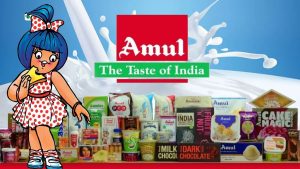To support this, the company has invested ₹330 crore since 2016 in expanding manufacturing and logistics. Of this, ₹265 crore was spent recently to add capacity that can support revenue of up to ₹1,500 crore.
“We plan to utilise that capacity fully over the next three years,” he added.
However, scaling up in India’s price-sensitive and brand-cluttered snacking market is far from easy. Legacy companies Haldiram’s, Bikanervala and Balaji dominate shelf space in both traditional and modern retail.
Chitale’s growth bet is rooted in smaller product stocks at mass price points. It recently launched mini bhujia rolls at ₹20 and is now scaling up Binge Bars, baked ₹10 namkeen bars aimed at what Chitale called the “C and D category buyer.” There are over a dozen variants in the pipeline, each designed to appeal to local palates. What Chitale won’t do is dilute quality to hit the lowest price points.
“We realised that at ₹5, we can’t deliver the kind of ingredients we use – groundnut oil, dairy fats, and no trans fats. So we dropped that plan entirely,” he said.
Instead, the focus is on value-added snacking and clean-label offerings.
“Nutrition per gram is the lens we’re applying. Every product we launch must deliver better health without losing taste or affordability,” he said.
Experts said that mass consumption may be the opportunity, but it’s also where the slowdown pinches first. And unlike the metros, where brand recall can drive premium purchases, the mass-market game is unforgiving on margins.
When rural demand weakens, sub- ₹20 snacks are the first to see drop-offs. Chitale’s decision to stay out of the ₹5 price point, while deliberate, also limits its play in a market that’s still extremely value driven.
Chitale Bandhu is using quick commerce platforms not just as a sales channel, but as a demand predictor. The company watches city-level demand closely. If Q-commerce sales in a market like Kolkata or Jammu hits a certain threshold, it starts deploying on-ground sales teams and building out distribution in that region.
This approach has helped Chitale open up new territories, especially where traditional distributors were hesitant to stock perishables.
“Q-commerce is giving us digital visibility and data. If we can sell 120 packs a day in a market we’ve never entered, that’s proof of concept,” Chitale said.
Q-commerce is a double-edged sword. Logistics costs remain high, and brand discoverability can be inconsistent. It’s also unclear whether consumers will continue to pay a premium for speed in smaller towns and tier-2 cities.
Beyond the diaspora
Overseas expansion is another growth lever. The company exports its products to over 60 countries and runs 12 stores in the US, two in the UAE, and two in Australia. That number is set to grow: the US store count is expected to double to 25 this year.
The strategy is shifting from selling to Indian-run grocery stores abroad to cracking mainstream retail. The company is already supplying to Coles in Australia and is in advanced talks with a leading US supermarket chain. To enable this, Chitale has set up subsidiaries in both countries.
“We want to go beyond the diaspora. That means adapting to global retail standards not just in compliance, but in packaging, positioning, and category innovation,” Chitale explained.
While overseas manufacturing isn’t on the table just yet, the company is open to technology partnerships.
“We’re interested in tech transfers that let us manufacture in India, but sell products tailored for global markets,” he said.
Consultants are of the view that mainstreaming Indian snacking will take more than good distribution, including brand familiarity, smart packaging, and marketing muscle.
One of the brand’s strongest moats is its perception of quality and transparency. During the pandemic, when a rumour circulated that factory workers were infected with covid-19, Chitale went live on Instagram from the plant to address concerns head-on.
That moment cemented the brand’s belief in showing – not just telling – its commitment to safety and hygiene, said Chitale. Its upcoming integrated plant in Ranjangaon will feature visitor galleries and consumer-facing education zones.
“We want people to see how our products are made. Once they trust the process, repeat purchase becomes easier,” says Chitale.
That trust is also what drove the company to onboard Tendulkar as brand ambassador in 2023.
“He brings authenticity and pan-India recognition, especially in regions where our brand recall is low,” he added.
No funding pressure
Unlike peers such as Haldiram’s, which is exploring private equity partnerships, Chitale Bandhu remains fully family owned. There are no plans to raise external capital.
“Unless we plan a big bang global manufacturing play, we are comfortable funding our own growth,” Chitale said.
For now, the playbook is clear: scale through distribution, innovate for mass appeal, and preserve trust through transparency and quality. In an industry crowded with regional titans and new-age D2C brands, Chitale Bandhu is trying to carve out a rare space, one that blends tradition with technology, nostalgia with next-gen snacking.


















